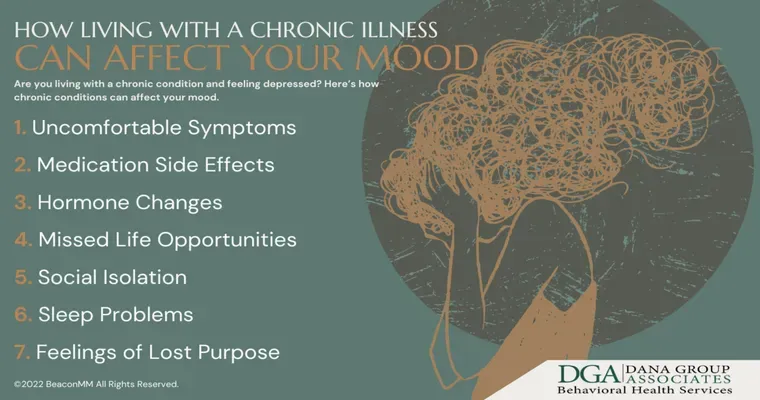Caring for someone with a "chronic illness" that is not going to get better can be a daunting experience filled with emotional ups and downs. It often leads to feelings of helplessness and stress for both the caregiver and the patient. Understanding how to manage these feelings is crucial for maintaining a healthy relationship and supporting the person in need. This article will explore effective strategies to handle the "stress" associated with caring for someone with a long-term health condition.
First, it is essential to acknowledge your feelings. Caring for someone with a chronic illness can be overwhelming, and experiencing "stress" is a normal response. Allow yourself to feel whatever emotions arise, whether it's frustration, sadness, or anxiety. Recognizing these feelings is the first step toward managing them effectively.
Next, effective communication is key. Open and honest discussions with the person suffering from the chronic illness can greatly alleviate misunderstandings and emotional strain. Make sure to listen actively and validate their feelings. This not only helps build trust but also creates a supportive atmosphere where both parties can express their needs and concerns.
Setting boundaries is another vital strategy. It is essential to take care of your physical and emotional well-being while providing support. Determine how much time and energy you can realistically dedicate to caregiving without compromising your own health. This may involve saying no to certain responsibilities or asking for help from others, which can be challenging but ultimately necessary for your well-being.
Seeking support is crucial. Connecting with others who understand your situation can provide comfort and invaluable insights. Consider joining a support group, either in person or online, where caregivers share their experiences and coping strategies. This sense of community can help alleviate feelings of isolation and provide emotional support when you need it most.
Incorporating self-care into your routine is essential for managing stress. Engaging in activities that promote relaxation and mental well-being—such as exercise, meditation, or hobbies—can significantly improve your resilience and emotional health. Remember, you cannot pour from an empty cup; taking care of yourself enables you to be a better caregiver.
Educating yourself about the specific chronic illness can also be beneficial. Understanding the challenges and limitations faced by your loved one can foster empathy and patience. Knowledge empowers you to provide better support and anticipate their needs, thus reducing stress for both of you.
Lastly, consider professional help if the stress becomes unmanageable. Therapists and counselors can provide guidance and coping strategies tailored to your unique situation. They can help you process your emotions and develop healthier coping mechanisms.
In conclusion, handling the stress of caring for someone with a "chronic illness" that is not going to get better requires a combination of self-awareness, communication, boundary-setting, support, self-care, education, and, if necessary, professional help. By implementing these strategies, you can create a more balanced and supportive environment for both you and your loved one, ultimately enhancing the quality of life for both parties involved.





